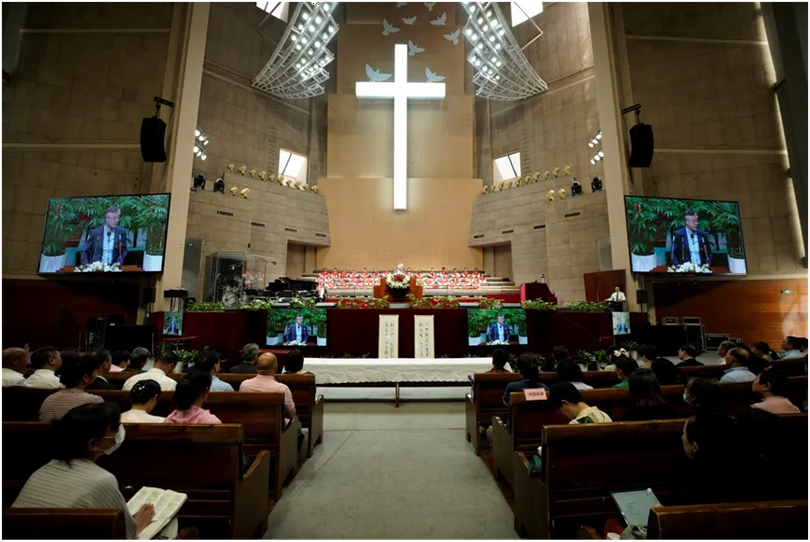In the present era, the spread and outreach of the Christian faith encounter various challenges, both external and internal to the Church. Recently, I visited a retired pastor who served in full-time ministry for over four decades and listened to his insights on the issues arising during the development of churches in China. His observations focused mainly on internal factors, highlighting five common misunderstandings in Christian life.
Blunt Evangelism
Numerous Christians are eager to share the gospel, yet some employ threatening language such as, "Believe in Jesus and go to heaven; don't believe and go to hell." Such a blunt approach can lead to negative effects, causing people to reject Christianity. Some may question, for instance, why in Christianity one is condemned to hell regardless of one's conduct, while in legal systems, punishment is determined based on the nature and severity of one's crime. Such a faith seems too harsh or authoritarian.
Actually, those who have never heard the gospel should not be judged and condemned to hell simply for their lack of belief. As in Romans 2, God will judge them according to the law of their conscience. Evangelism should be conducted gradually, allowing individuals a process to accept the message. Christians ought to learn effective methods of sharing the gospel, with less effort but greater results achieved. Additionally, the gospel should not be proclaimed from a position of a high judge but shared with love and compassion.
Tendency to Testify About Miracles and Blessings
Countless Christians are inclined to bear witness for the Lord, with some sharing accounts of unique spiritual experiences. For example, some claim to have fallen into a well and been rescued by an angel midway, while others talk about a journey to heaven or seeing the scene of hell. These types of testimonies are often difficult to verify, and listeners must be discerning, carefully evaluating whether such accounts align with biblical truth and common sense.
Among all the testimonies, the most common are those of blessings such as healing from illness, career success, or children's academic achievements. However, these are God's grace, not the core of the Christian faith. When facing illness, believers should both pray for God's healing and make proper use of the medical resources He has provided, avoiding extreme approaches. Even in the face of death, God's blessings should not be denied. Some Christians are materially wealthy, while others are not. There are also believers from affluent backgrounds who choose lives of poverty to serve the Lord, even becoming martyrs. Therefore, one cannot simply assume that only wealth represents divine blessing.
Then, what makes for better testimonies? The answers are those related to spiritual growth, such as testimonies of confession and repentance, transformation of life, responding to Christ's salvation on the cross, embarking on the path of the cross in following Jesus, bearing fruit in evangelism, and bringing glory to God.
A Narrow View of Serving God
When it comes to serving God, many tend to equate it with becoming a full-time preacher. However, there are various paths to serve God besides full-time ministry.
Throughout the history of Christianity in China, numerous missionaries devoted themselves to founding orphanages, universities, and hospitals, as well as to translating dictionaries and the Bible into Chinese. The universities established by these missionaries offered not only biblical education but also a variety of academic disciplines, contributing to the development of many outstanding talents in China. Their efforts paved the way for the spread of the gospel, and their spirit of love in action remains a valuable example for believers today.
The Pursuit of Superficial Efforts
Many Christians and even pastors are reluctant to engage deeply and often seek shortcuts. Some believers actively participate in various church activities, which in itself is not wrong, but are unwilling to delve into the Word of God. Likewise, some churches hold weekly events that may appear vibrant on the surface, yet they neglect the essence, such as the church's vision, mission, pastoral philosophy, and management structure. As a result, these activities often lack depth and long-term sustainability. While many churches are exploring the sinicization of Christianity, much of the effort is imitative and campaign-like, lacking a spirit of grounded learning...
The truth is, to approach the Christian faith faithfully, one cannot avoid the cross.
A Biased View on Church-State Relations
Some churches believe that church-state relations involve only the church and the government, assuming that if this relationship is well managed, all will be well. In reality, the relationship between the church and the surrounding community is equally important. Churches should reflect on whether they are accepted by, and bear witness to, the local residents.
There are both positive and negative examples of this. One church faced a serious conflict. When its building was declared unsafe and needed to be rebuilt, the government approved reconstruction on the original site. However, due to strong opposition from nearby residents, the church was forced to relocate. In contrast, another church in a residential area was able to grow steadily because it regularly provided social services to the community and fostered strong relationships with local residents, earning their appreciation.
May every Christian study the Bible deeply, gain a profound understanding of its truths, avoid the common misunderstandings mentioned above, integrate the truth into daily life, and live out a testimony as the light and salt. Through practical action, may they glorify the Lord's holy name and contribute to the continuation and growth of the Christian faith.
Originally published by the Gospel Times
- Translated by Poppy Chan












